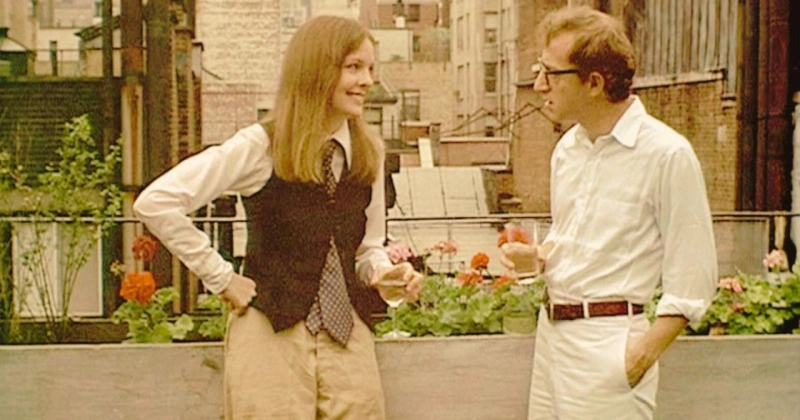"Annie Hall," directed by Woody Allen and released in 1977, is often celebrated as a cinematic masterpiece that deftly explores themes of love, relationships, and identity. However, amidst its comedic charm and poignant storytelling, the question arises: Is "Annie Hall" a feminist movie? In this blog post, we delve into the complexities of gender dynamics portrayed in the film, examining its treatment of female characters, social commentary, and enduring legacy within feminist discourse.
Deconstructing Gender Stereotypes: At its core, "Annie Hall" challenges traditional gender roles and stereotypes, particularly through the character of Annie Hall herself. Played by Diane Keaton, Annie is depicted as independent, quirky, and assertive—a departure from the passive, one-dimensional female characters often seen in romantic comedies of the era. Her unconventional fashion sense, intellectual curiosity, and willingness to speak her mind defy societal norms, positioning her as a feminist icon ahead of her time.
Empowering Female Agency: Throughout the film, Annie asserts her agency in various aspects of her life, from her career aspirations to her romantic relationships. Unlike many female characters in romantic comedies, Annie is not defined solely by her pursuit of a man\'s affection. Instead, she navigates her own path, pursuing her passions and desires with a sense of autonomy and self-assurance. In doing so, "Annie Hall" empowers women to embrace their individuality and prioritize their own happiness and fulfillment.
Subverting Male Gaze: "Annie Hall" subverts the male gaze by presenting Annie as a complex, multifaceted character with her own desires, flaws, and aspirations. Rather than objectifying her for the pleasure of the male protagonist, the film portrays Annie as a fully realized individual whose agency and autonomy are central to the narrative. By foregrounding Annie\'s perspective and experiences, "Annie Hall" challenges the notion that women exist solely for the gratification of men, thereby aligning with feminist principles of equality and representation.
Critiquing Patriarchal Norms: Underneath its romantic comedy façade, "Annie Hall" offers subtle critiques of patriarchal norms and societal expectations surrounding gender and relationships. Through witty dialogue and observational humor, the film exposes the absurdities of traditional gender roles and the ways in which they can stifle personal growth and genuine connection. By highlighting the complexities and contradictions inherent in male-female dynamics, "Annie Hall" invites viewers to question and challenge entrenched gender norms.
Conclusion: While "Annie Hall" may not fit neatly into the conventional mold of a feminist movie, its portrayal of female agency, subversion of gender stereotypes, and critique of patriarchal norms align with core principles of feminism. Through the character of Annie Hall and its nuanced exploration of gender dynamics, the film offers a thought-provoking commentary on love, identity, and the pursuit of authenticity.
Learn More: WhySoFamous.com


